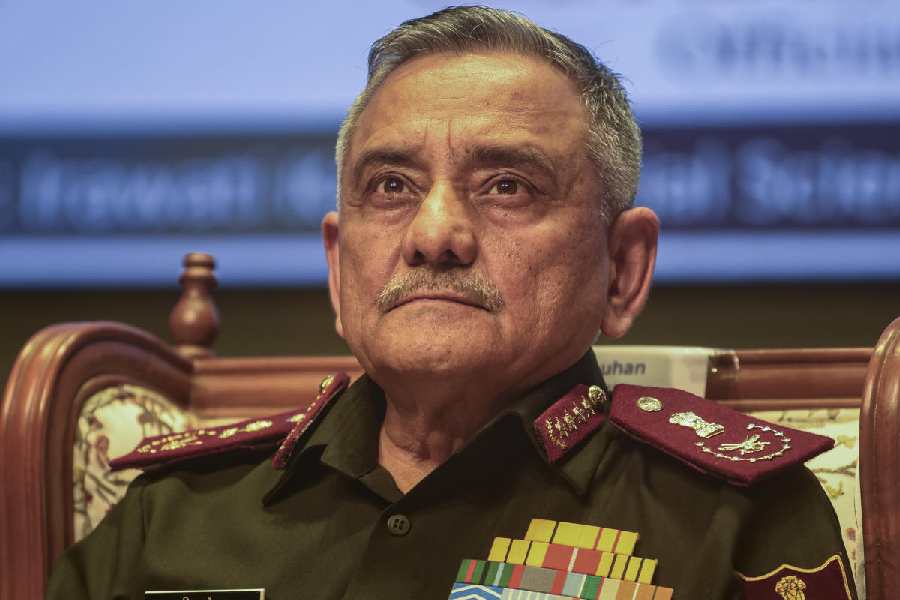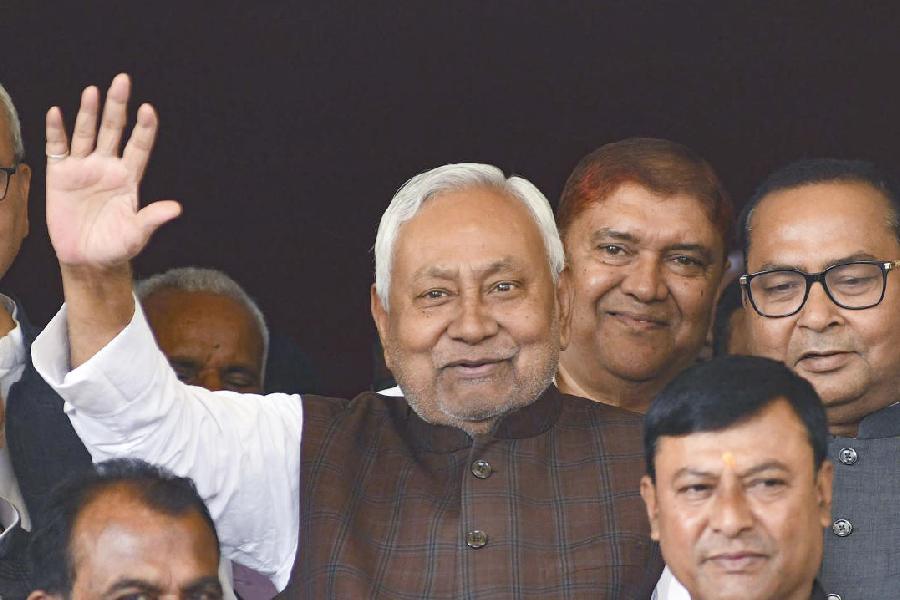Losses are not important but outcomes are, chief of defence staff Anil Chauhan said on Tuesday, days after acknowledging that India lost combat jets because of a “tactical mistake” during Operation Sindoor.
Accusing Islamabad of escalating the conflict and later picking up the phone to end hostilities following India’s military response, the top military general said the neighbouring country would not be able to hold India hostage to terrorist activities and that New Delhi was not going to live under the shadow of terror and nuclear blackmail.
“Professional forces are not affected by setbacks and losses in a war. What is important is that the morale needs to remain high even if there are setbacks,” Chauhan said while delivering a lecture on “Future Wars and Warfare” organised by Savitribai Phule Pune University. Using a cricket analogy, he said when a team wins, “there is no question about how many wickets and how many balls and how many players”.
“Adaptability is an important constituent of a very professional force. You should be able to understand what went wrong, need to rectify your mistake and go out again. You cannot sit down in fear. You should display a high tempo of operation and that is the hallmark of a professional force and that’s what we displayed. Losses are not important, but it is the outcomes which are important.”
Chauhan emphasised that India’s military capabilities had been built with calculated risks and foresight.
“Both nations (India and Pakistan) had tried to build different kinds of capabilities, so obviously there was an inherent amount of risk in this. None of the capabilities that we had acquired had actually been on the battlefield. There is always an element of risk in it, but as they say, you cannot succeed if you don’t take that type of risk. We knew that we have a better counter-drone system,” he said.
The CDS said military operations were highly unpredictable, as sometimes the best plan goes out the window after the first bullet is fired.
“No operation plan is based on 100 per cent preparedness. You cannot be 100 per cent prepared for every kind of contingency, and you cannot have 100 per cent information about the enemy. You are always groping in the dark while carrying out military operations, and in every military operation, there is an element of risk. The only thing is that there should be a kind of calculated risk,” he said.
Offering fresh details on the timeline and aftermath of the military conflict that followed the Pahalgam massacre, the CDS said Islamabad was the one to escalate the conflict when it launched a barrage of attacks on the night of May 10, three days after Indian armed forces carried out Operation Sindoor that destroyed nine terror infrastructures in Pakistan and Pakistan-occupied Kashmir (PoK).
“On the 10th of May, at about 1am, their aim was to get India to its knees in 48 hours. Multiple attacks were launched and in some manner, they escalated this conflict, while we had actually hit only terror targets….
“However, operations which they thought would continue for 48 hours folded up in about 8 hours, and then they picked up the telephone and said they wanted to talk,” Chauhan said.
In interviews to Bloomberg TV and Reuters in Singapore on Saturday, Chauhan had said India had lost fighter jets due to a tactical mistake on the opening day of Operation Sindoor but had swiftly rectified it and launched further attacks to “hit deep inside Pakistan” on subsequent days.
His admission prompted several retired generals and the Congress to ask why the revelation was made on foreign soil and described the development as embarrassing, poor public diplomacy and handing Pakistan a propaganda victory.
Referring to the April 22 Pahalgam terror attack in which 26 civilians were killed, Chauhan said it caused a huge “revulsion and hatred” in society.
“What happened in Pahalgam was profound cruelty towards the victims because all of them were killed withhead shots in front of their families and their children, and they were shot in the name of religion... which is kind of unacceptable to this modern world. This caused a huge revulsion in society. There was a kind of hatred. It revived memories because this was not a single act of terror against India,” he said.
The CDS iterated that Operation Sindoor was not over yet. “It’s a temporary cessation of hostilities. There is a need to keep our guard up.”
Chauhan said Pakistan had pursued a hostile posture towards India, rooted in the ideology of a “thousand-year war”, first articulated by its former Prime Minister and President Zulfikar Ali Bhutto in 1965.
“In a 1965 speech to the UN Security Council, Zulfikar Ali Bhutto, former Prime Minister and former President of Pakistan, declared a 1,000-year war against India,” he said while referring to the pre-Pahalgam comments made by Pakistan army chief General Asim Munir.
“His comments were reminiscent of those previously propagated against India by Zulfikar Ali Bhutto,” he said.
Munir, he said, spewed venom against India just days before the deadly terror attack in Pahalgam.










